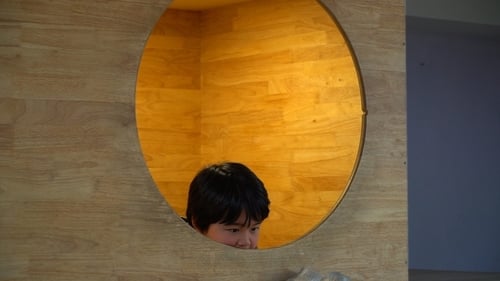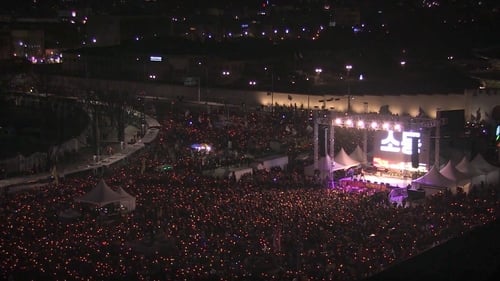Hong Hyung-sook
Birth : 1962-09-22, Seoul, South Korea

Director
Junha is one of the most difficult children at the school. His autism causes him to attack his classmates and even teachers without warning. Each outburst further isolates Junha from his community as his teachers and peers struggle to find a way to live "with" Junha. The camera provides an intimate look into this society, leaving the question; what is human entity and how is it connected?

Director
Project 1 _ Hong Hyung-sook The children who are enthusiastically painting and cutting a doll. What stories will be told at the Square? - Project 10 _ Kim Jeong-geun The janitorial worker from the Busan Subway Station, Kim Young-ja talks about how she hopes to see a clean world, just like how she cleans everywhere in the subway.

Executive Producer

Director
Gangjeong Village, located at the southernmost part of Jeju Island's Seogwipo City, is in the true sense a 'breathtaking land of water.' In this film, eight directors independently yet collaboratively orchestrate a clever and humorous "mission" at this place where the groundwork for building a naval military base is in progress.

Director
In 2003 Song Du-yul, a philosophy professor, decides to go back to his homeland after spending thirty-seven years in Germany. Within a week after crossing the border, his reputation falls from a respected global political figure to an infamous communist spy. During a five-year-long trial, he was arrested and held in custody. This throws Korean society into turmoil and brings a big conflict between the Conservative and the Progressive parties. The filmmaker calmly contemplates this long period of the incident in detail and depicts a society with an indifferent manner. The story builds through an accretion of whimsical facts and it sometimes brings up uncomfortable truths which will irritate viewers. This film is a camera inside of us that evokes what viewers may have tried to forget.

Director
Professor Song, staying in Germany, was suspected of espionage and banned from Korea. Now he's expecting to visit Korean after 33 years. The Border City', by whech Berlin was called during the period of partition, could also be a name for Seoul naw that the city is haunted by the 'red complex' and refuses Prof. Song to come back to his homeland.

Director
This is a record of six years since the closing of the Doomeal branch school. At the end of 1994, the residents of Doomaelee, who protested the closure order of Doomeal Elementary School in Doomaelee village (Gapyeong-gun, Gyeonggi-do), developed an anti-closure movement and opened a school in the village hall to teach children. Due to the unreasonable demands of the education office and the government, it is discontinued.

Director
Independent films that do not have a less than 20 years history. They do not have lost hope and passion despite repeated conflicts and ups and downs. It was possible because of the belief that independent films are at the center of the world in their role, even though they are located on the periphery of society. Through the testimonies of many independent filmmakers, current activities, and footage, Korean independent films are shed new light. The periphery is the center, and the center is on the periphery. A reflection on the inside of the independent film industry to find trust in each other, talking about the hopes of independent films looking for a new path.

Director
With the implementation of the 1988 government policy to shut down and combine small schools around the nation, Doomeal Elementary School in Doomealee Village, Gapuyeong-gun, is designated to be closed.

Director
The 54th, the record of that summer, is, as the name suggests, the record of the 54-day long struggle for 'nullification of an ex officio sign' by Hyundai Precision Industry workers in Ulsan in the hot summer of 1993. Prior to collective bargaining on wages, the company secretly signed a unilateral agreement (signed ex officio) with one of the labor union leaders and tried to put it into practice. The workers of Ulsan Hyundai Precision Industry were enraged at the sense of betrayal of the union leader they trusted and the despicable treatment of the company, and for 54 days in the hot summer, they start a strike to get a fair price for their labor.

Director
In 1990, due to the skyrocketing rental price, many tenants suffered and even took their own lives. Showing their memorial service as a starting point, we approach the problems of housing policy and the social structural problems of Korean society.








